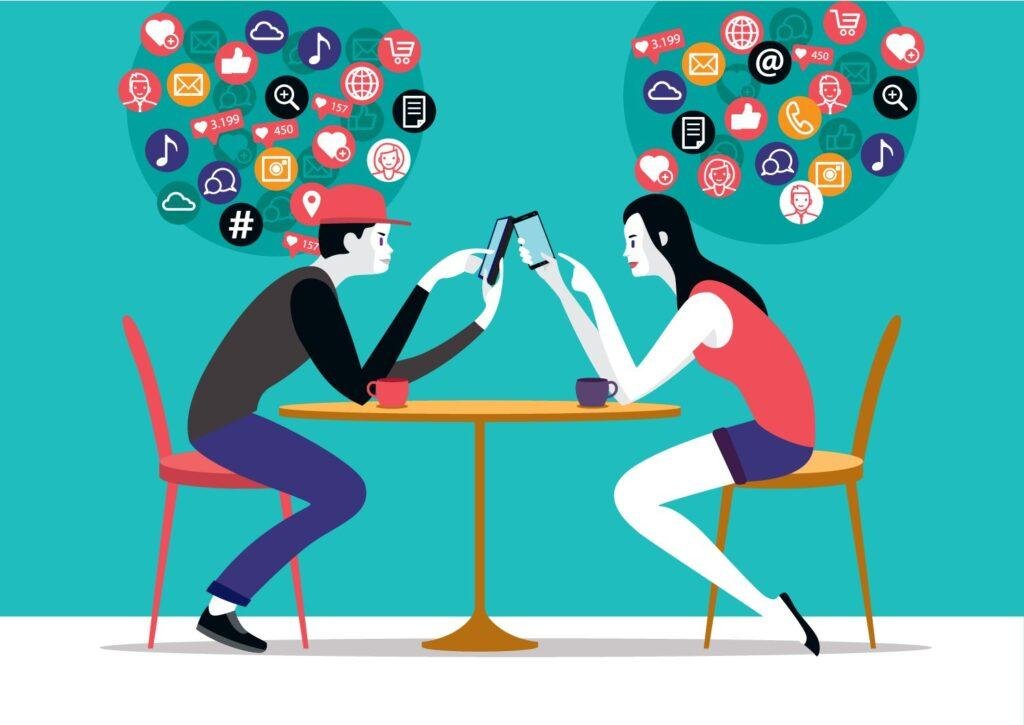The rise of social media has brought about a fundamental shift in the way we interact with one another and has had a profound impact on human psychology.
Social media platforms such as Facebook, Instagram, Twitter, and Snapchat have changed the way we communicate, connect, and relate to one another, and have become integral parts of our daily lives. In this article, we will explore the psychology of social media use, and how it impacts our emotions, thoughts, and behaviors.

Social Comparison
One of the most significant psychological effects of social media is social comparison. Social comparison refers to the process of comparing oneself to others in order to evaluate one’s own abilities, qualities, and accomplishments.
Social media platforms provide a constant stream of information about the lives of others, which can lead to feelings of envy, inadequacy, and low self-esteem.
People referring to this phenomenon as the “highlight reel” effect present only the best and most positive aspects of their lives on social media. Leading others to feel as though they are missing out or not measuring up.
Dopamine Response
Another psychological effect of social media use is the release of dopamine. Dopamine associates with pleasure and reward as a neurotransmitter.
When we receive social media engagement or phone notifications, our brains release dopamine, creating pleasure and satisfaction.
This can lead to addictive behavior as we rely more on the positive feedback received through social media.
Psychology: FOMO
Social media can also create feelings of FOMO, or Fear Of Missing Out. FOMO is the anxiety that arises when we feel we’re missing out on social events, experiences, or opportunities.
Social media platforms provide a constant stream of information about what others are doing, which can lead us to feel as though we are not living life to the fullest or as though we are not part of a social group. This can lead to feelings of anxiety, stress, and even depression.
Validation
Social media can also provide a sense of validation. When we receive positive feedback on our posts. It can reinforce our sense of self-worth and identity. community and connection with others.
However, the constant need for validation can be problematic. Leading to an overreliance on external feedback and a lack of self-esteem based on internal factors.
Psychology: Cyberbullying
Another psychological effect of social media use is cyberbullying. Cyberbullying refers to the use of social media to harass, intimidate, or harm others. It can spread quickly and easily across social media platforms, making it particularly damaging and difficult to escape from.
Cyberbullying causes anxiety, depression, and even suicide, worrying parents, educators, and mental health professionals.
Relationship Building
Finally, social media can be a powerful tool for building and maintaining relationships. Social media platforms allow us to connect with others, share information, and build communities around common interests and experiences.
Finding connections in their everyday lives can be particularly important for individuals who may be geographically isolated or struggle. Social media can build social support networks, essential for maintaining mental health and well-being. 온라인카지노사이트

